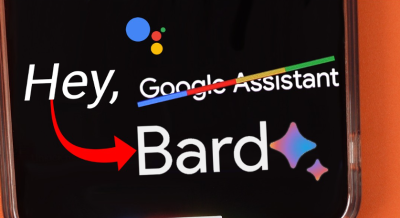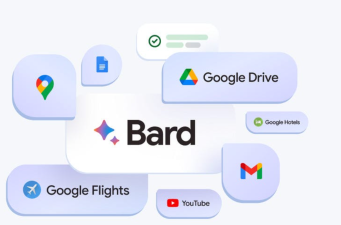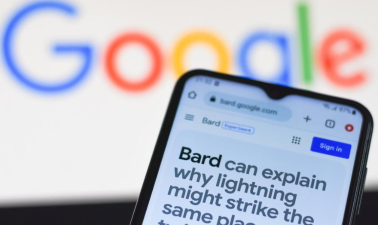Today, Google officially announced that its new generation of artificial intelligence assistant Gemini will completely replace the Google Assistant, which has been in service for nearly ten years, and become the core interaction entrance for Android phones, tablets, smart homes and other devices. This change marks a key step for Google in the field of generative AI, aiming to redefine the boundaries of "digital assistants" through smarter and multimodal experiences.
Today, Google officially announced that its new generation of artificial intelligence assistant Gemini will completely replace the Google Assistant, which has been in service for nearly ten years, and become the core interaction entrance for Android phones, tablets, smart homes and other devices. This change marks a key step for Google in the field of generative AI, aiming to redefine the boundaries of "digital assistants" through smarter and multimodal experiences.

From Assistant to Gemini: A two-year technology iteration
Since the launch of the first generation of Pixel phones in 2016, Google Assistant has become the world's largest voice assistant with natural language processing and speech recognition technology. However, with the explosive development of generative AI, single voice command interaction can no longer meet users' needs for "active service" and "multi-task collaboration".
In early 2024, Google renamed the experimental AI chatbot Bard to Gemini, and launched an independent application for the first time, supporting multimodal interaction of text, voice, and images. After more than a year of functional improvement, Gemini has gradually integrated the core capabilities of Assistant (such as smart home control and schedule management), while introducing innovative features such as Gemini Live real-time dialogue and Deep Research in-depth research assistant, and finally completed the comprehensive upgrade of brand and technology in 2025.
Four core upgrades of Gemini
Multimodal interaction revolution
Gemini can not only understand voice commands, but also recognize objects through cameras, analyze screen content, and even actively provide suggestions based on context. For example, after users take pictures of ingredients in the refrigerator, Gemini can recommend recipes and automatically generate shopping lists.
Deep integration of generative AI
Relying on Google's most powerful Gemini Ultra 2.0 model, the assistant can generate personalized content in real time, such as writing email drafts, planning travel routes, and even assisting in writing code. Paid users ($19.99 per month) can also unlock advanced features such as 2TB cloud storage and priority experience of new features.
Seamless collaboration across devices
Gemini now covers mobile phones, tablets, cars (such as Android Auto), smart watches and home devices. For example, after setting a meeting reminder in the car by voice, Gemini will mark it in the mobile phone calendar and announce it in advance through the smart speaker.

Privacy and security enhancements
Users can view and delete Gemini's activity records at any time and customize data sharing permissions. In addition, the Android 15 system has added an "AI anti-fraud" function to identify suspicious calls and phishing links.
Migration plan and user impact
Google said that the classic version of Google Assistant will be removed from most mobile devices by the end of 2025, but users of old models can continue to use basic functions. The migration will be carried out in stages:
Starting today, Android users can switch manually through system updates or downloading the Gemini app.
In the second quarter of 2025, the newly launched Pixel 9, Samsung Galaxy S25 and other flagship models will be pre-installed with Gemini as the default assistant.
Smart home devices (such as Nest speakers) and car system upgrades will be completed in succession this year.
It is worth noting that Gemini still relies on some Assistant underlying services (such as phone dialing) in the early stage, but Google promises to achieve full autonomous control through extended updates before August.
Industry competition and ecological layout
Faced with the challenges of OpenAI's ChatGPT and Microsoft Copilot, Google is building a "full ecological AI barrier" through Gemini. In addition to the consumer end, the Gemini model has been deeply integrated into Google Workspace (intelligent document processing), Google Cloud (enterprise solutions) and developer tools (such as Android Studio code suggestions). In addition, cooperation with hardware manufacturers is also accelerating-OnePlus has confirmed that its overseas version of the phone will be pre-installed with Gemini, replacing the default position of Assistant.

User feedback and future prospects
Although some users are worried about the increase in learning costs, Google revealed that millions of users have actively switched to Gemini, and its "context memory" and "task chain processing" capabilities have been highly praised. For example, users only need to say "help me plan a weekend camping trip", and Gemini can automatically check the weather, recommend equipment, book a campsite, and generate a shared list for friends.
Sissie Hsiao, vice president of Google AI, emphasized: "Gemini is not a substitute for Assistant, but a bridge to a 'real universal assistant'. In the future, it will be combined with new technologies such as AR glasses and holographic projection to become an 'intelligent extension' of users' perception of the world."
Conclusion
From Bard to Gemini, from voice commands to multimodal interactions, Google is reshaping the AI assistant track with radical technology iterations. Behind this "Assistant retirement" is not only a brand name change, but also Google's ultimate bet on the "AI native experience". With the advancement of the migration plan, 2025 may become a "watershed year" for the popularization of generative AI.

